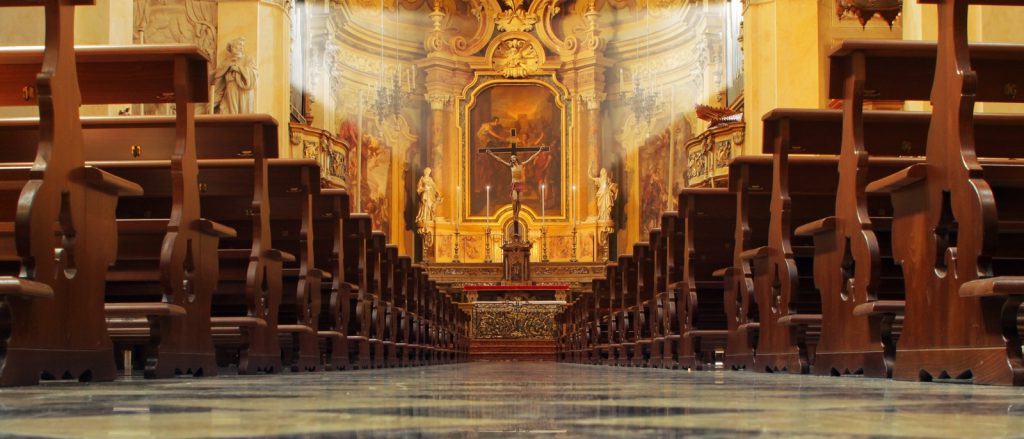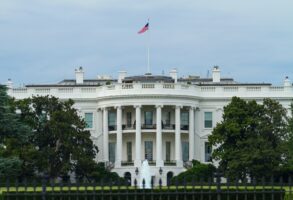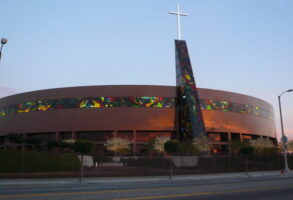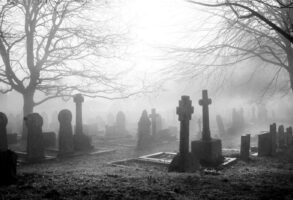
Published February 9, 2015
Intercollegiate Review - Spring 2015 issue
This article appears in the Spring 2015 issue of the Intercollegiate Review. Check out the rest of the issue here.
The question of secularization—or how it is that societies once markedly religious become less so, particularly the societies of what’s known as Western civilization—has been much studied in modern times. Urbanization, rationalism, higher education, industrialization, feminism: these are just some of the possible causal agents debated by sociologists when they try to figure out why some people stop going to church.
Yet one highly significant social fact that rather obviously bears on the question of secularization has gone unnoticed. That is the relationship between the well-documented decline in Western churchgoing, especially among Millennials, and the simultaneous rise of a toxic public force on campuses across the Western world: the new intolerance.
“The new intolerance” is shorthand for the chilled public atmosphere in which religious believers now operate. Many people of faith face unique burdens that would have been unthinkable even a couple of decades ago: burdens of ostracism, of losing the good opinion of their neighbors, of being trash-talked in the public square. Some even face the loss of livelihood or the constant threat and reality of litigation; for a primer, see the hounding last spring of Mozilla CEO Brandon Eich for his donation years earlier on behalf of traditional marriage.
Although this new intolerance has begun to attract attention and debate, the connection between that phenomenon and the rise in unbelief among twenty-somethings remains to be explored. And the scrutiny is overdue. It is well known, and well documented by social science, that many students, not only in America but all over, lose their religion in college. The interesting question is why.
The New Intolerance
An atheist or other nonbeliever might say students lose religion because college is where they learn higher reasoning, and higher reasoning drives out the superstition of faith. That kind of answer might seem to make perfect sense—except that it’s refuted by the facts. In fact, social science points to theopposite conclusion: better-educated people are actually more likely than those with less education to be found in church. (See my book How the West Really Lost God for a roundup of the empirical evidence demonstrating this pattern across a range of societies, from Victorian England to the modern-day United States.) So the answer from sophistication just doesn’t hold up as an explanation for what happens to religious commitment during the college years.
No, something else is going on in the numbers about faith and people in their teens and twenties. For starters, we might focus in on this fact: the campus these days is ground zero of the new intolerance.
Exhibit A, to start with an example from across the pond, is what happened at Christ Church College, Oxford, in November 2014—or more precisely, what didn’t happen. A scheduled debate on the subject of whether “abortion culture” hurts Britain, between two journalists who write for theTelegraph, was canceled for reasons that seemed to be read aloud from a totalitarian playbook: because of last-minute “concerns” on the part of the college.
Translation: a feminist group incited protest via social media aimed at disrupting the event, and did so in terms vehement enough to frighten the authorities. That this travesty of the principle of free speech played out in the college once attended by none other than John Locke is beyond ironic.
The Oxford shout-down is no isolated example, as everyone within reach of a computer already knows. So much could be written about the new intolerance on campus that it would fill not one essay but several books. In the United States, the Foundation for Individual Rights in Education (FIRE) recently filed four free-speech lawsuits against four colleges in a single day. One suit defended the rights of a student whose university forbade him from wearing a T-shirt saying, “We get you off for free.” The shirt—promoting a student group that provides free assistance to students accused of campus disciplinary offenses—was judged to run afoul of ever-changing speech codes about women.
To mention just a few other examples of the punitive new code, columnist George Will—one of the most distinguished public intellectuals in the entire Anglosphere—was treated to protests in the fall upon speaking at Miami University, Ohio, again for the ostensible charge of violating what is allowed to be said of women. Last spring, a number of prominent speakers backed down from giving commencement addresses—or worse, had their invitations rescinded—when threatened with protests. (Ironically, several of them were female.)
It does not detract from the importance of free-speech cases in themselves to point out something new here: the same forces that are intimidating the intellectual expression of students can also be expected to intimidate their religious expression.
Rather obviously, it is not only the humanities, and not only intellectual life itself, that are threatened by the rise of Robespierrian speech codes. No, so too are actual students—in the sense that the intimidation of the new intolerance cannot help but envelope them in college, from that first good-bye at the hugging tree to that last party celebrating commencement.
The Gale Winds of Political Correctness
The intimidation varies from one campus to another, from one department to another, and from one protest to another. But while the decibels of ferocity may change, the negative posture toward religious believers themselves—or for that matter toward anyone who finds anything of value in the Judeo-Christian tradition and bothers to defend it—remains the same. And once more, Occam’s razor would suggest a causal connection here.
Students, like any other human beings, cannot help being sensitive to atmospherics. Let’s think again of the new force that drives a CEO out of his post for having donated to defend traditional marriage. If the new intolerance can penalize an “alpha” like him so dramatically, how much more menacing must it be to people just starting out, whose futures and livelihoods depend so heavily on the opinion of their peers?
Sometimes, interestingly enough, the very incivility of the new intolerance backfires.
A friend with a son at an overwhelmingly progressive college said recently that the experience of sitting through one particular class had turned that student toward conservatism. Why? Because as a white male known also to be heterosexual, he was singled out repeatedly for second-class social treatment by the professor—no matter what his bona fides otherwise. He has become, in virtue of the new intolerance, what might be called a political counter-convert.
Other anecdotal cases like his come to mind. In a book I edited a few years ago called Why I Turned Right: Leading Baby Boom Conservatives Chronicle Their Political Journeys, several authors traced their own conversions similarly, as reactions to the obnoxiousness of radicalism on campus. Another friend serves as inadvertent witness to the power of political correctness: he was so appalled by what he saw on his Ivy League campus that he abandoned his own secular background, converted to Catholicism, and eventually entered the priesthood.
Even so, contrarian-minded students like these, it seems safe to guess, are outliers possessed of unusual courage or cussedness (or both). Many others faced with the gale winds of political correctness, one guesses, succumb to the blast in one way or another, including by religious self-censorship.
It’s time to air the idea that college students do not stay out of church or synagogue because their education leads them to enlightened conclusions about the big questions. No, the more likely dynamic is that thanks to the new intolerance, the social and other costs of being a known believer in the public square mount by the year—and students take note. Hence intimidation on the quad, multiplied over many years and campuses, is an unseen engine of secularization.
Mary Eberstadt is a senior fellow with the Ethics and Public Policy Center in Washington, D.C., and author of several books, including, most recently, How the West Really Lost God: A New Theory of Secularization.





